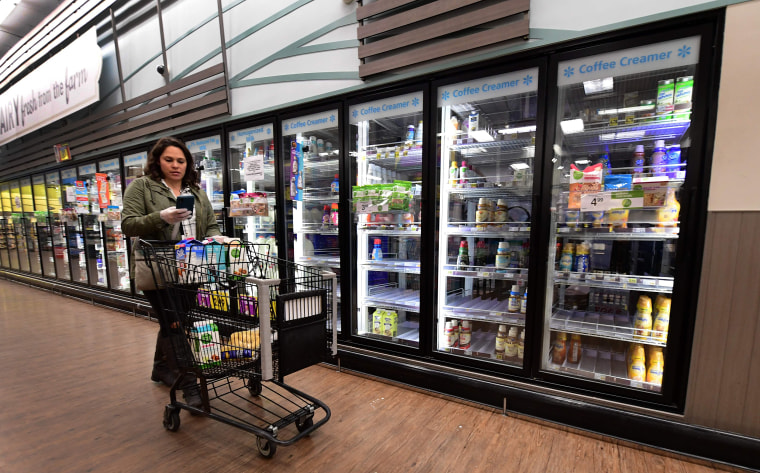The Federal Reserve’s decision Wednesday to initiate the first of what is expected to be a series of interest rate hikes will make debt more expensive for U.S. consumers who are already paying higher prices for gas and energy, experts say.
People who carry balances month to month with variable-interest-rate credit cards will probably be among the first to feel the financial pinch of the Fed’s quarter-percentage-point rate hike.
“Pretty quickly, people will start paying more for their credit card debt,” said Kimberly Palmer, a personal finance expert at NerdWallet.
Half of U.S. consumers have credit card debt, and those who haven’t paid off their balances will be paying more in one or two months, she said.
The central bank's announcement was widely expected. It's the first time since late 2018 that the core interest rate has moved up. Fed Chairman Jerome Powell cited a strong economy and low unemployment as rationales for tighter monetary policy. Several more rate hikes are coming down the pipeline.
As a result, borrowers will pay more for private student loans and auto loans, among other things, experts said.
Cooling inflation
Joel Prakken, a U.S. economist with S&P Global Market Intelligence, said raising interest rates could actually discourage some consumers from buying cars and homes.
But, he added, the follow-on effect will help slow economic activity and cool inflation, so taking a bite out of consumer spending is part of the plan.
Consumers are already spending more on groceries and electricity as inflation has accelerated over the past five months, hitting a 40-year high for February.

“In the short term, the interest hike is inconsequential, but this is the start of a series of interest rate increases over the next year or two,” said Greg McBride, the chief analyst at Bankrate. “It’s the cumulative effect of those rate hikes that will be impactful to the household budget and also the broader economy and job market.”
McBride warned that if the federal funds rate climbs above 2.5 percent, it could trigger a national recession.
Prakken said what’s far more pressing for consumers right now are higher energy, fuel and food costs that are agitated, at least in part, by Russia’s invasion of Ukraine — so the full scope of the effects of the rate hike won’t be known for a while.
Some experts advise consumers to fortify their personal finances by paying down debt.
“Almost everything charged on a credit card will become more expensive,” said Jack Gillis, the executive director of the Consumer Federation of America. “Credit card debt is a huge burden for consumers, and that burden is bound to increase.”
On the other side of things, higher interest rates are almost certain to be a financial benefit for the savers.
Palmer said people with money in their savings accounts will get higher yields, which usually move in tandem with federal rate hikes.
“Pay off credit card debt and look at your overall budget and cut back on spending where you can and put more into savings,” she said.